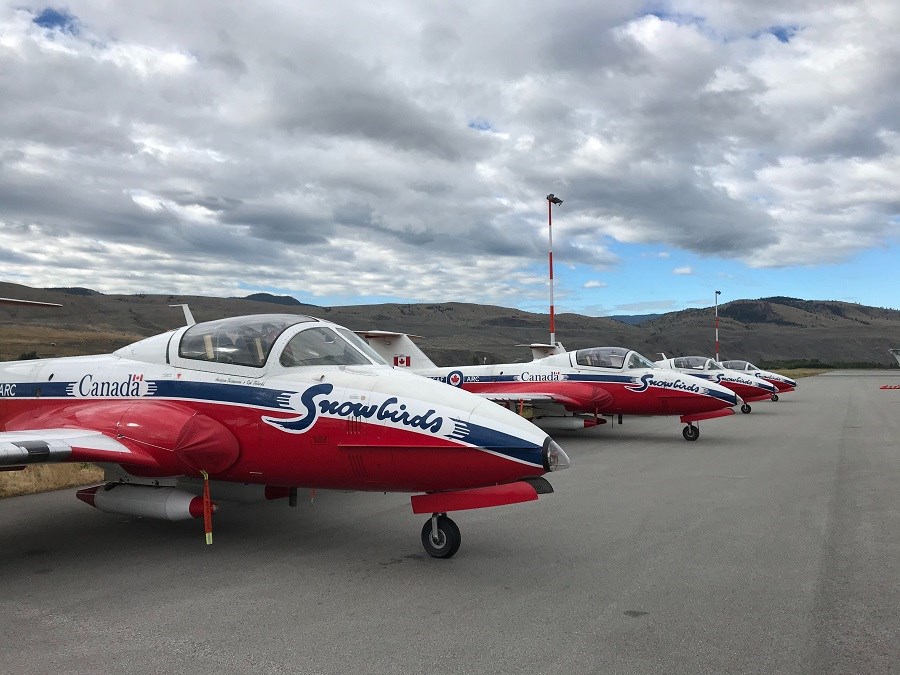A bird strike on takeoff was to blame for the Snowbirds crash in Kamloops last spring that killed Capt. Jenn Casey and injured a Royal Canadian Air Force pilot.
“Snowbird 11’s power loose could not have come at a worse time — low altitude, low airspeed, proximity to another aircraft and in the vicinity of a built-up area,” said Col. John Alexander, RCAF director of flight safety.
“This tragic accident reinforces the importance of continuous, situation-specific training to minimize reaction time in an emergency and the importance of a timely decision to eject.”
Casey and Capt. Richard MacDougall did eject from the CT-114 Tutor aircraft, but did so at low altitude and “conditions that were outside safe ejection seat operation parameters,” according to the report, not leaving enough time for parachutes to deploy properly.
The May 17, 2020, crash saw a Snowbirds jet crash in Brocklehurst shortly after takeoff. The plane landed in the Glenview Avenue area, while Casey and Capt. MacDougall came down on nearby Schriener Street — Casey in a backyard and MacDougall on a roof.
The crash took place during Operation Inspiration, an effort by the Snowbirds to bring joy to Canadians during the COVID-19 pandemic. The operation had been spearheaded by Casey.
The RCAF report recommends additional training for CT-114 aircrew “to better prepare them for an engine failure after takeoff in a low-level environment” and a directive clarifying how aircrew “should prioritize an ejection-scenario near or over a populated area.”
“The Royal Canadian Air Force prides itself on operational flight safety; however, we recognize the inherent risk with military flying, despite the tireless work of our team of professionals to safely operate and maintain our aircraft,” Brig.-Gen. Denis O’Reilly, commander of the 2 Canadian Air Division of the RCAF, said in a news release.
“In emergency situations, pilots must make split-second decisions after quickly processing a lot of information, while at the same time dealing with high levels of stress, g-forces, and other challenging environmental factors in the cockpit.”
O’Reilly said he expects the RCAF to take lessons from the Kamloops crash.
“We are dedicated to learning from this accident and welcome the flight safety recommendations to minimize the chance of a repeat occurrence,” he said.
“I wish to thank the people of Kamloops, the members of the Tk’emlúps te Secwépemc First Nation, Kúkpi7 First Nation, Skeetchestn First Nation, and all supporters in Canada and abroad for their outpouring of support to 431 Squadron during this very difficult time.”



